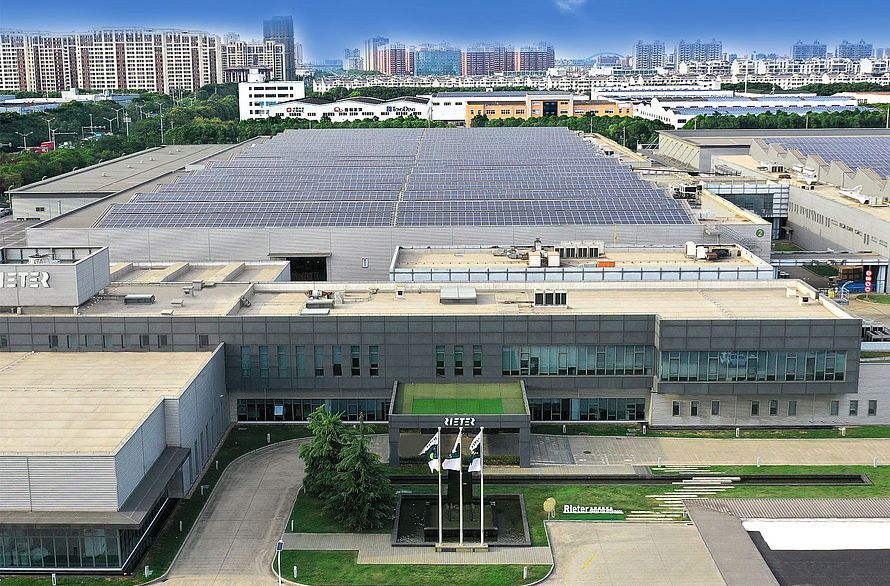The threat of an energy crisis in Europe has given further impetus to Rieter’s existing strategy of optimizing energy consumption. All European locations were instructed to take rapid and comprehensive measures to increase energy efficiency and reduce dependence on fossil fuels, especially gas. The company plans to switch entirely to renewable energy sources for heating and cooling by 2030.
Under the slogan “Reduce energy consumption – minimize energy losses – substitute fossil fuels”, Rieter is pressing ahead with its strategy of reducing energy consumption and substituting fossil fuels. In cooperation with external consulting firms, further savings potential is being identified. In 2022, Rieter conducted energy audits at all production sites. The results of these audits are expected during the course of 2023. Recommendations for action will be derived from them. The initial recommendations have already been implemented at individual sites. In Winterthur, energy saving measures such as reducing the heating temperature resulted in a 23% reduction in total energy consumption in the last quarter of 2022 compared to the same quarter of the previous year. Wherever possible, energy specialists at Rieter exploit further potential for savings, such as heat recovery in machines and the elimination of leaks in the compressed air network.
Innovative Approaches for Greater Efficiency
In Hammelburg (Germany), Temco manufactures components for the production of filament yarns and man-made fibers. The production site has been redesigned for improved energy efficiency and increased flexibility. Since the beginning of 2023, the company has replaced an outdated, centralized filtration system and the associated cooling system with new, decentralized systems. Various machine groups are now supplied with oil from multiple systems, and three lathes are equipped with individual supply units. This lowers the energy requirements of the entire site by almost 5%, the plant requires less chemicals and cooling water, and maintenance work is also reduced.
Expansion of Solar Capacity
Rieter further expanded its solar power capacity in 2022. Four new photovoltaic systems (PVS) in three countries deliver an additional 4 200 MWh of capacity. The company now has ten PVS in four countries with an annual capacity of 7 500 MWh, and worldwide can cover approximately 13% of its own electricity requirements with renewable energies. The largest PVS is in Changzhou (China). With a capacity of 3 350 MWh, it has provided between 25% and 30% of the electricity demand since May 2022. In November, the Group commissioned a new PVS in Ústí nad Orlicí (Czech Republic). This supplies 20% of the site’s electricity needs.
In Switzerland, following the commissioning of two further plants, the company now has more than seven PVS. Since May 2022, the Rapperswil-Jona site has been covering 5% of its electricity requirements with its own solar power. A new plant with an annual capacity of 100 MWh complements the existing PVS at the headquarters in Winterthur (Switzerland). Together with the small hydropower plant, which has a capacity of 1 000 MWh, the Winterthur site can now cover 25% of its electricity requirements with its own renewable energy. In India, the company has already been sourcing around 20% of its electricity needs from solar power since 2019.
